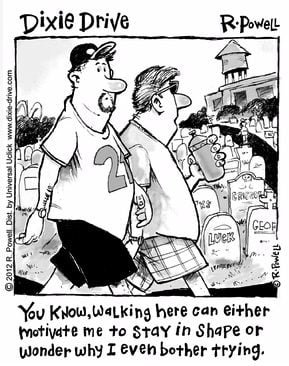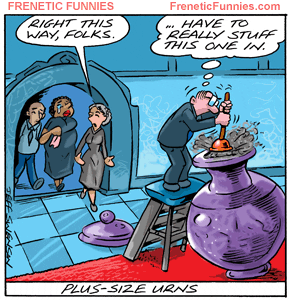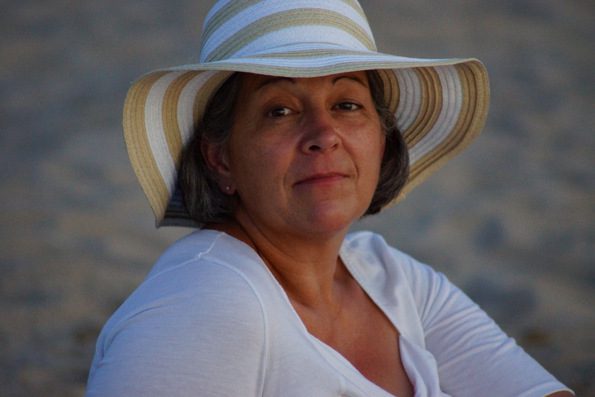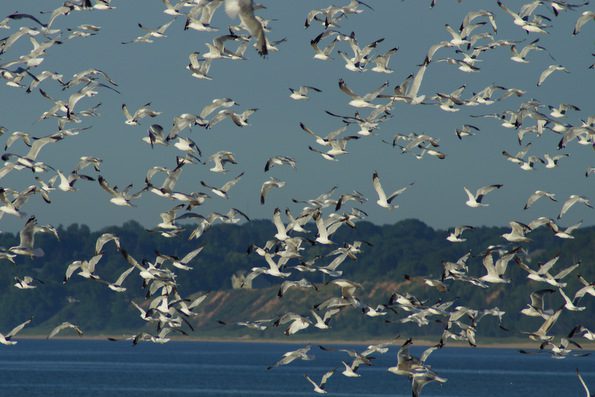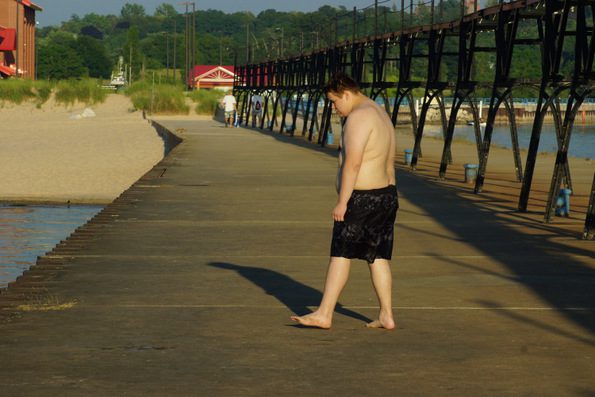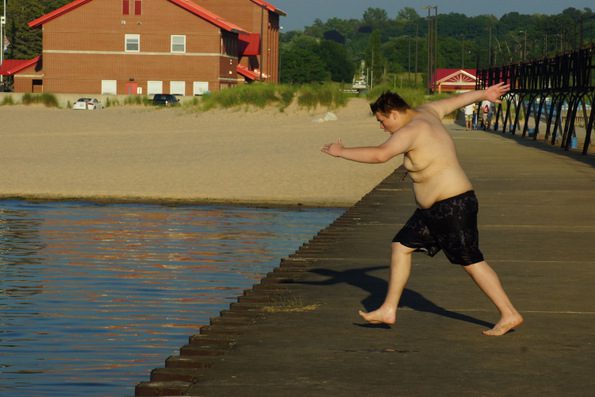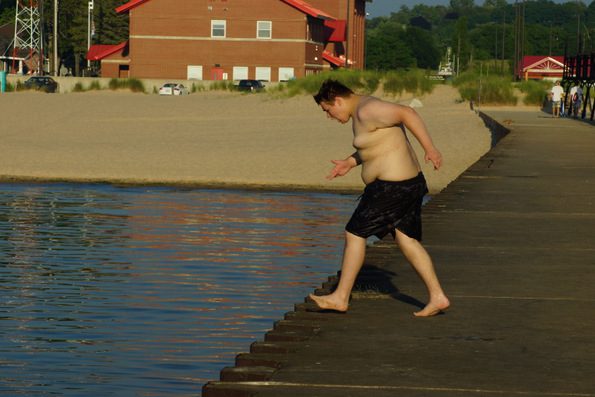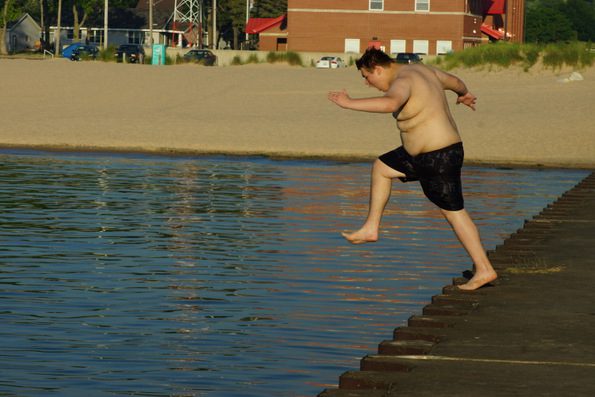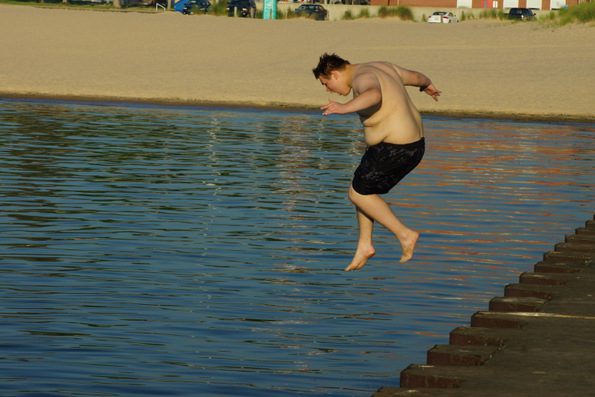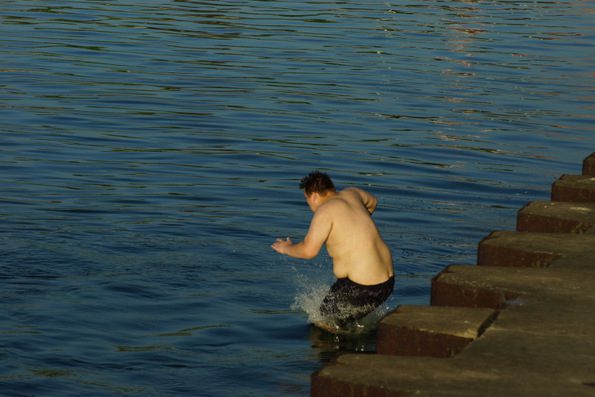
By Gary Wilson, Great Lakes Now
In 2024 when Donald Trump as a presidential candidate proposed piping water from British Columbia, Canada to California, his statement was largely dismissed as campaign rhetoric.
Once he was elected, Canadians started paying attention but the potential water grab was seen as logistically and politically problematic and unlikely to gain traction. And the issue received scant attention in the water-rich Great Lakes regions of the U.S. and Canada.
But now, Great Lakes water and related agreements between the U.S. and Canada are clearly on President Trump’s radar according to a recent New York Times story.
The Times reported that Trump told Canada’s Prime Minister Justin Trudeau in February that he wanted to abandon various border agreements including those concerning water.
“He wanted to tear up the Great Lakes agreements and conventions between the two nations that lay out how they share and manage Lakes Superior, Michigan, Huron, Erie, and Ontario,” according to the Times.
Executive director of the Traverse City non-profit FLOW, Liz Kirkwood said the scope of agreements include the Boundary Waters Treaty, the Great Lakes Water Quality Agreement, and the Great Lakes Compact.
Kirkwood described the agreements as a “Great Lakes partnership between Canada and the U.S. and they are a global model to protect and steward 20% of the planet’s fresh surface water.”
Kirkwood said any attempt to break the agreements would be “bad for the health of our lakes and our communities and ultimately destructive of the U.S. relationship with a trusted neighbor.”
Given the magnitude of Trump’s statements, Great Lakes Now canvassed the region for reactions, seeking comments from select governors and the Premier of Ontario. Ontario borders four of the five Great Lakes and is Canada’s most populous province with 14 million people.
In addition to FLOW, Great Lakes Now sought comments from Illinois-based Alliance for the Great Lakes and Wisconsin-based Milwaukee Riverkeeper. Both were instrumental in promoting passage of the Great Lakes Compact that prevents large-scale diversions from the Great Lakes.
Alliance CEO Joel Brammeier said: “U.S. treaties and agreements with Canada, and similar agreements among the states and provinces, are the bedrock on which sustainable protection and restoration of our Great Lakes is built.”
“There is no space for the U.S. to step back from its shared obligation,”Brammeier said.
From Milwaukee, Riverkeeper Cheryl Nenn said: “we should not play politics with the Great Lakes.”
Nenn also noted that only 1% of the Great Lakes are replenished by rainfall and snowmelt.
“They are a one-time gift from the glaciers, and we need to protect them from abuse and over-consumption and that should supersede all politics,” Nenn said.
Great Lakes Now also sought comments from water policy experts who have held official governance positions.
Chicago’s Cameron Davis was a longtime Great Lakes advocate before moving to the U.S. EPA under President Obama where he advised the administrator on Great Lakes issues.
“Midwesterners see protecting the Great Lakes and its water as an act of patriotism,” Davis said. “And they’re smart enough to know Canada is our friend in that effort.”
Davis noted that support for the lakes has been bi-partisan and he expected that the Great Lakes states “will defend their relationship with Canada.”
The bi-partisan federal support over the last 20 years includes an executive order signed by President George W. Bush that declared the Great Lakes a “national treasure.” Bush’s order laid the groundwork for development of the Great Lakes restoration program.
President Obama jumped-started restoration by putting $475 million in his first budget and funding continues today. It was also Bush who signed the legislation that codified the Great Lakes Compact into federal law.
Canada’s Maude Barlow is a veteran author and water advocate who served as the senior adviser on water to the United Nations General Assembly.
Barlow pointed to the lack of detail in Trump’s comments but said if he is referring to abandoning the Great Lakes Compact, “that is worrying.”
“He could then just cancel the Compact on the American side and start diverting Great Lakes water around the country to service the manufacturing and technology resurgence he is planning. In this case there would be little Canada could do,” she said.
The Canadian provinces of Ontario and Quebec have agreements that mirror the U.S. Compact but exist separately.
Barlow said Canadians value and protect their water heritage and will fight to defend it.
“And we know many Americans would take our side in such a struggle,” Barlow said.
Michigan’s Dave Dempsey served as a senior adviser on the staff of the International Joint Commission (IJC), the U.S.-Canada agency that advises the countries on transboundary issues.
“The IJC has a culture of joint fact-finding,” Dempsey said. “And the respectful resolution of boundary waters disagreements has served the two countries well. Abrogating the treaties would be a colossal mistake.”
An IJC spokesperson declined to comment on Trump’s water statements saying the agency “does not comment on political matters or issues of domestic policy. This is important in order to ensure our effectiveness as an impartial advisor to governments.”
Michigan Gov. Gretchen Whitmer and Wisconsin Gov. Tony Evers, both Democrats, did not respond to a request to comment on President Trump’s water statements.
Daniel Tierney, spokesperson for Republican Ohio Gov. Mike DeWine declined to comment saying “I am not aware of a formal or final policy on which to comment.”
However, it’s important to note that Great Lakes governors have responsibility for the lakes via the Compact.
At a meeting of Great Lakes governors and premiers in Milwaukee, in 2019, Gov. Whitmer told Great Lakes Now that the lakes are “at the core of who Michigan is” and said, “absolutely, Michigan has to lead on Great Lakes issues.”
A spokesperson for Ontario Premier Doug Ford declined to comment saying:
“The issue is purely speculative at this point.”
Ford, a Progressive Conservative, has been aggressive in responding to Trump’s tariff threats.
The White House did not respond to a request to comment on Trump’s desire to put water agreements between the U.S. and Canada in play.
Please check out Circle of Blue for more articles on the Great Lakes.
Bruce Gerencser, 68, lives in rural Northwest Ohio with his wife of 47 years. He and his wife have six grown children and sixteen grandchildren. Bruce pastored Evangelical churches for twenty-five years in Ohio, Texas, and Michigan. Bruce left the ministry in 2005, and in 2008 he left Christianity. Bruce is now a humanist and an atheist.
Your comments are welcome and appreciated. All first-time comments are moderated. Please read the commenting rules before commenting.
You can email Bruce via the Contact Form.

